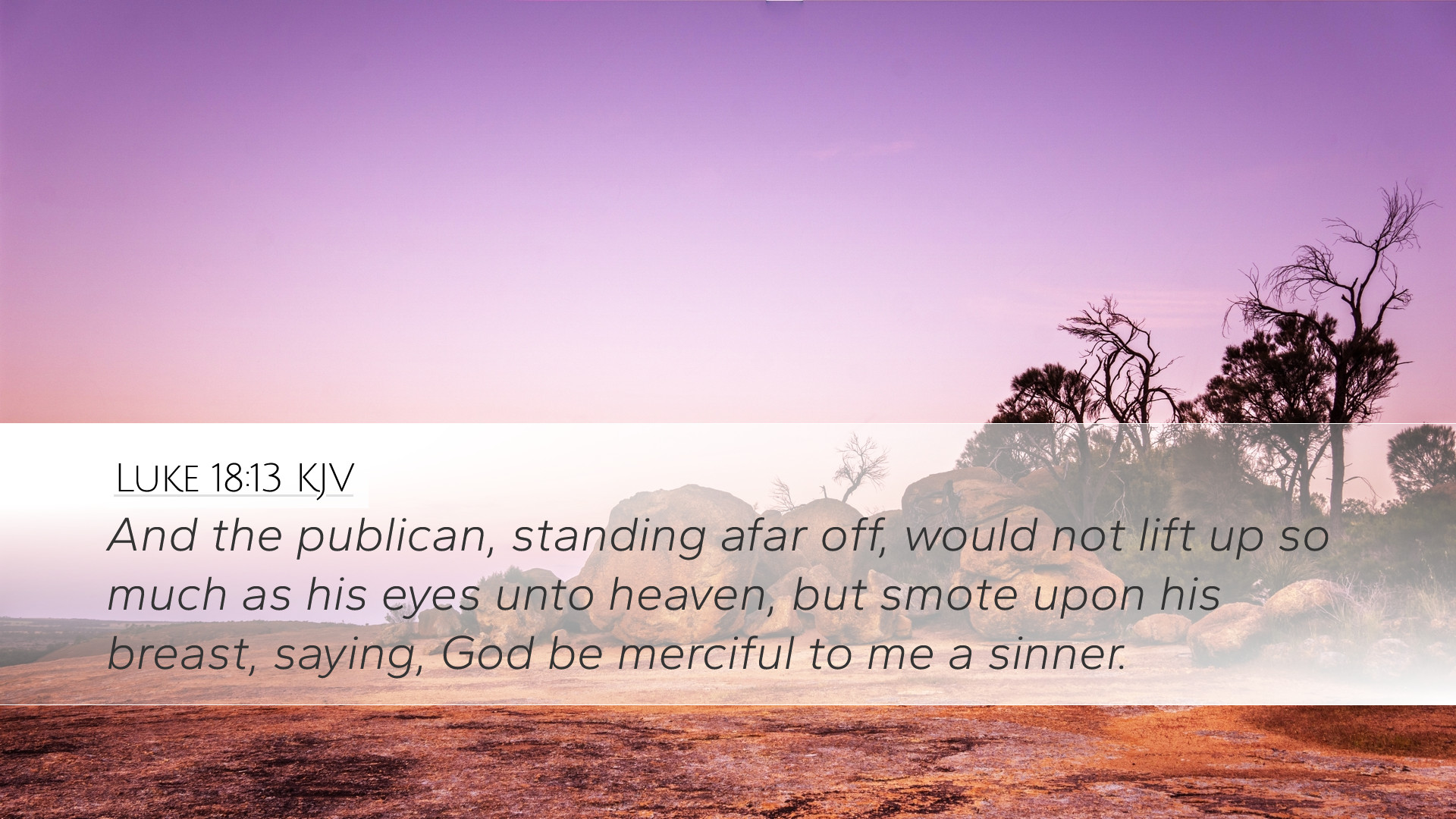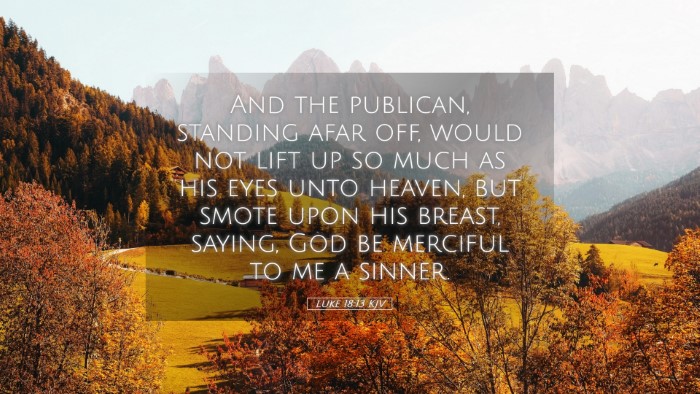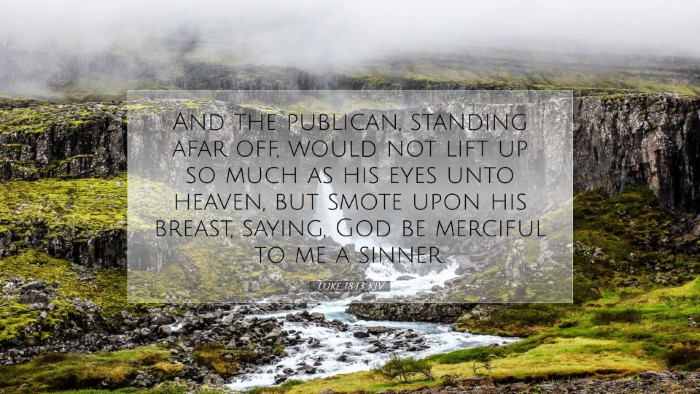Commentary on Luke 18:13
Luke 18:13 reads: "And the tax collector, standing afar off, would not so much as raise his eyes to heaven, but beat his breast, saying, ‘God, be merciful to me a sinner!’”
Introduction
This verse presents a poignant and powerful image of humility and repentance. It encapsulates the essence of true contrition before God, contrasting the attitude of a proud Pharisee. In examining this verse, we will draw upon the insights of historical commentaries to deepen our understanding of its implications for faith and practice.
Contextual Background
In the broader context of Luke 18, this parable is told to highlight the differences between two types of individuals who approach God in prayer. The setting includes a Pharisee and a tax collector, a juxtaposition that invites deeper reflection on self-righteousness versus genuine humility.
Historical Perspectives
- Matthew Henry: Henry emphasizes the contrast between the Pharisees' self-righteousness and the tax collector's genuine humility. He notes that the tax collector’s position "standing afar off" indicates his acute awareness of his unworthiness.
- Albert Barnes: Barnes remarks on the psychological state of the tax collector. He argues that the act of "beating his breast" signifies deep remorse and recognition of personal sin. This was a culturally expressive act of grief and sorrow in biblical times.
- Adam Clarke: Clarke adds depth to the discussion by examining the implications of the tax collector’s plea for mercy. He articulates that this represents an acknowledgment of God's grace and the necessity of divine forgiveness for redemption.
The Tax Collector’s Posture
The physical posture of the tax collector is significant in understanding his heart’s condition.
- Standing Afar Off: Matthew Henry notes that the distance signifies a humble recognition of his own depravity. This position reflects his understanding that he is unworthy to approach God directly.
- Eyes Downcast: The tax collector’s reluctance to raise his eyes to heaven is a visual expression of his shame and guilt. According to Albert Barnes, this reflects his humility and an authentic understanding of his standing before God.
The Plea for Mercy
The central plea of the tax collector, "God, be merciful to me a sinner," resonates with themes of grace and repentance.
- Divine Mercy: Adam Clarke places emphasis on the word "merciful." He suggests this reflects a deeper dependency on God’s grace rather than personal merit. The tax collector's prayer embodies the essence of pleading for God's intervention and forgiveness.
- Recognition of Sinfulness: The admission "a sinner" aligns with the biblical principle that true repentance begins with acknowledging one’s sins. Matthew Henry highlights that the tax collector’s honesty before God is paramount for receiving mercy.
Contrasting the Pharisee
In juxtaposing the tax collector with the Pharisee, we gain further insights into self-righteousness versus true humility.
- Self-Righteousness of the Pharisee: Matthew Henry discusses how the Pharisee’s prayer was filled with self-praise, standing proudly and comparing himself favorably with others, suggesting a heart devoid of true contrition.
- True Humility of the Tax Collector: Barnes asserts that unlike the Pharisee, the tax collector approaches God without any claim to merit. His humility illustrates that acknowledgment of one’s sinful state is crucial for justification before God.
Theological Implications
The theological resonance of this passage extends beyond the narrative into foundational Christian beliefs about repentance, grace, and justification.
- Nature of Justification: According to Clarke, the tax collector’s response serves as a model for all believers that justification comes by faith through humility and repentance, not through works.
- Extreme Grace of God: Henry reflects on the radical mercy of God extended towards those who recognize their need for forgiveness, demonstrating how this parable articulates the profound scope of God’s grace.
Conclusion
Luke 18:13 offers a powerful illustration of humility before God. The tax collector's posture, plea, and recognition of sin showcase the heart attitude required to receive God’s mercy. This verse serves as a reminder for pastors, theologians, and all believers of the importance of approaching God with sincerity, humility, and a reliance on His grace alone for salvation.


